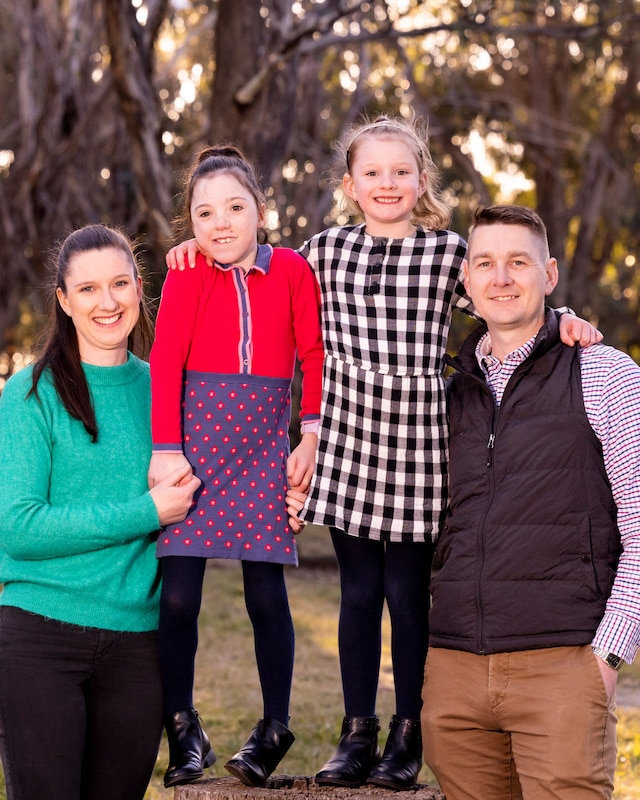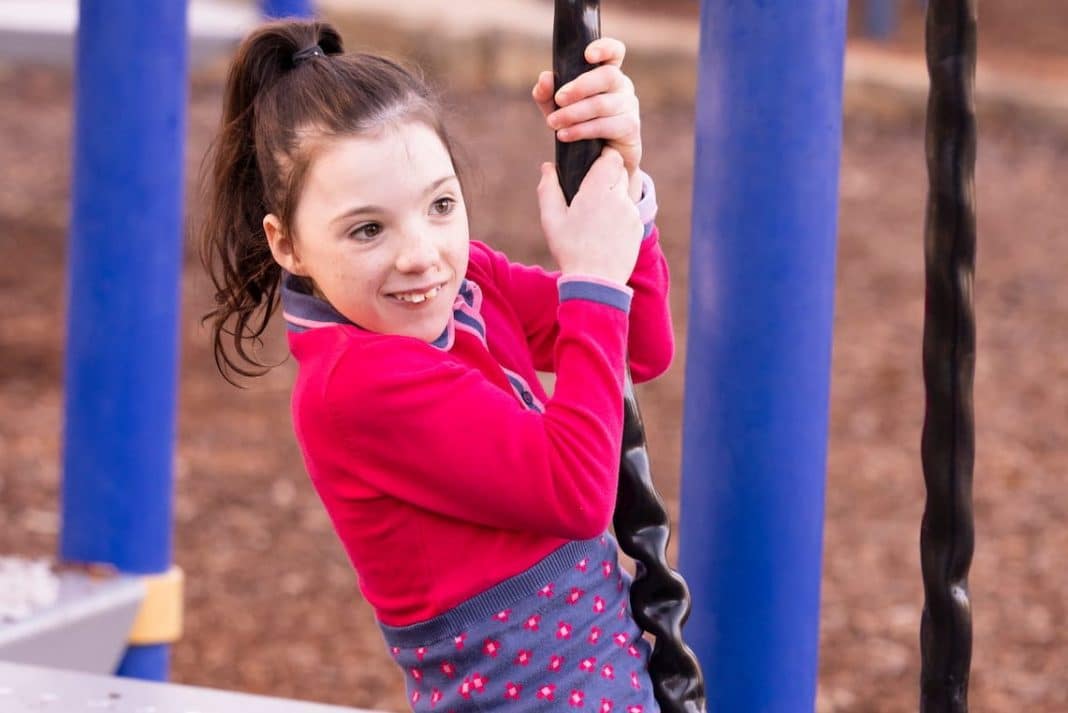“Three days after Ashley was born, we heard the words ‘your daughter may never walk’,” says local mum Belinda Clifford. “Up until that point in time, we really didn’t think that anything was wrong with our baby.”
In 2014, Canberra couple Hugh and Belinda welcomed their long-awaited baby girl into the world. It wasn’t until 2018 that they discovered their daughter, Ashley, had a rarely seen genetic mutation.
“There could potentially be many more with Beck-Fahrner Syndrome, who may have been misdiagnosed because they haven’t had genetic testing to determine what it is,” says Hugh.
It’s difficult enough to figure out the root of your child’s physical and cognitive development delays when there is a documented cause, questioning specialists and poring hours into your own research.
For Hugh and Belinda, the biggest obstacle was that Beck-Fahrner syndrome had not been discovered yet. The years that elapsed between Ashley’s birth and diagnosis were a whirlwind of medical appointments, unanswered questions, and an overwhelming sense of uncertainty.
“Just not knowing what her future holds, what’s her life expectancy, what’s around the next corner?
“We were referred to specialist after specialist as we encountered many issues that just couldn’t be explained,” says Belinda. “The list of Ashley’s doctors just kept getting longer and longer.”
In the first two years of her life, Ashley had seen over 30 specialists.
Throughout it all, she was a little trooper. “It was not uncommon to have eight people holding her steady just to get an X-ray or blood tests.”
After Ashley underwent newly developed genetic testing in 2018, the family was notified later that year that a study had been conducted in America on 11 other known cases.
“It was like reading a description of each of Ashley’s challenges, covering every issue we had encountered with her to date,” says Belinda.
Among those challenges were poor growth, kidney issues and high palate issues, struggles when it came to hearing, seeing, and feeding, as well as intellectual disabilities, autism and ADHD.
“It was a relief to discover what she had. However, global understanding of this condition was still limited.”
On top of grappling to pinpoint the cause of Ashley’s issues, Hugh and Belinda faced the myriad of “real and far-reaching” challenges inherent in raising a child with a disability.
“The comments from others, the looks as you deal with your child in public during a meltdown … The continual guilt that you’re not doing enough or haven’t done enough research.
“The looks your child gets as they can’t handle a team sport but you’re just trying your best to give them those experiences, the constant guilt that you’re not spending enough time with your other child.
“The constant fighting to get the assistance you know your child needs. Due to lack of research, it is an even harder challenge,” says Belinda.
No milestone, however late, went without celebration – including Ashley learning to walk.
“As late as it was, it was a huge achievement because it’s always been so uncertain in what she was going to be able to achieve,” says Hugh.
A call for support

Across the Pacific in the USA, the doctor who identified Beck-Fahrner syndrome, Dr Jill A. Fahrner, was recently granted funding to undertake additional research at John Hopkins University.
Fifty other cases have been identified worldwide, and a call has been issued to syndromic people to get involved.
“The research team at John Hopkins University has identified that Ashley’s genomic sequencing is different to what they’ve seen with other cases of Beck-Fahrner syndrome,” says Hugh.
“So, they’re very keen to have Ashley participate in the research, as are we. Not just for her future’… but to support the development of treatments.”
“We have longed for this day for many years, to be able to discover and learn more about Ashley’s syndrome,” says Belinda.
The Cliffords are aiming to raise $40,000 to get Ashley and her family to America, and to support her as she partakes in the research at John Hopkins.
It’s a lofty task, but through donations to their Go Fund Me page, they are almost a quarter of the way there. As Hugh says, “every little bit counts”.
“Life has not been and will not be easy for Ashley, but we want to give her the best opportunities it has to offer,” says Belinda.
“She may be small, but she has an extremely large personality, with a constant smile and beautiful laugh that brightens the room.”
Canberra Daily would love to hear from you about a story idea in the Canberra and surrounding region. Click here to submit a news tip.



